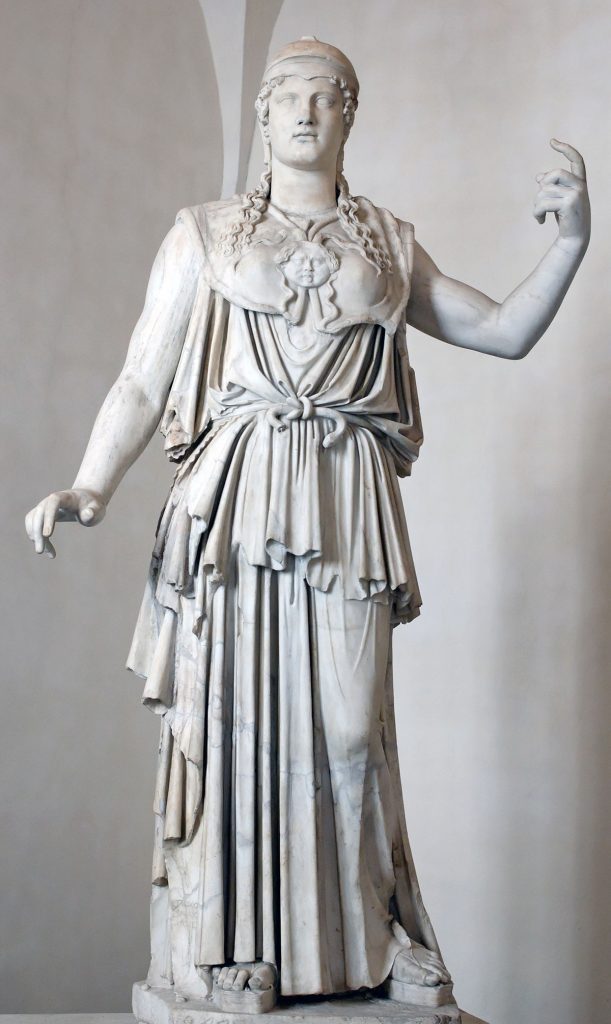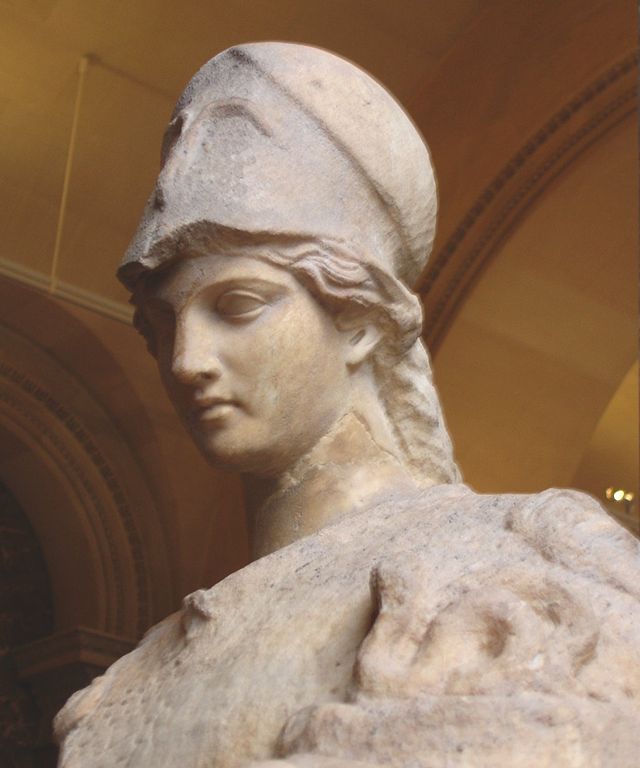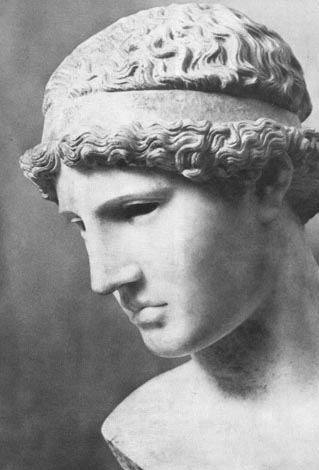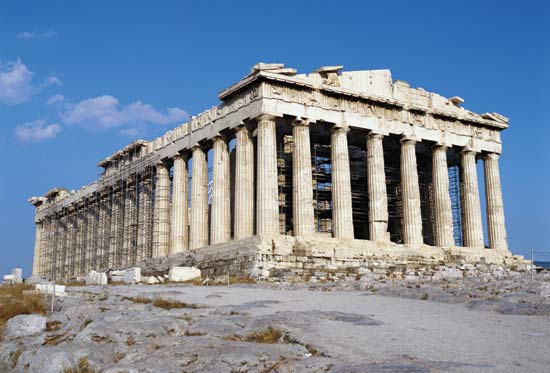Pallas Athena is best known as the patron goddess of Athens when Greece was the intellectual centre of the ancient world.

The Parthenon, often considered the most beautifully proportioned temple ever built, was dedicated to the goddess and still stands in partial ruin on the Acropolis in modern Athens.
The choice of Athena as the city’s titular deity was particularly appropriate. Athens personified as nowhere else the emergence of rational thought and government. Athena’s parents were Zeus and Metis. Zeus was the unquestioned and eternal King of the gods, while Metis was the wisest among the gods. Athena’s birth was remarkable in that she was born from the forehead of Zeus fully armed. With flashing grey eyes and always carrying the aegis, her father’s special weapon, she was second only to her father in power and wisdom. A virgin goddess and her father’s favourite child, Athena had no peer amongst the other Olympians. Not only was she first in war and intellect, Athena was also the foremost patron of the arts and crafts, which for the Greeks included fine arts such as poetry as well as those activities which we would classify as applied arts.

An indication of how deeply this connection between thinking and making is ingrained in Greek theology can be gleaned by considering that “poetry” comes from the Greek verb “to make” (ποιέω = poiēō) and that the Greek word for “art” and for “craft” is “τέχνη” (technē). The Greek religion as we best encounter it is to be found in two epic poems by Homer, the Iliad and the Odyssey. In each the central human characters, Achilles in the Iliad and Ulysseys in the Odyssey are the special favourites of Pallas Athena. In these personalities we see the themes of military valour and intellectual curiosity come together in the context of a providentially controlled universe.

These themes are still being worked out, particularly in Western societies, where the ideals of self- government, religious freedom and technology (harking back to the idea of “τέχνη”) continue to seek a reconciliation not yet attained.
The name “Athena” is of unknown origin. Like the epithet “Pallas” it actually goes back into the very beginning of Greek religion and civilization and is thus unknown in its original meaning. Plato speaks of an origin from the Greek, Ιθεονόα, Atheonόa. This etymology assumes that “Athena” is composed of the Greek word for god “theόs”, and the word for mind “noūs”. The epithet “Pallas” is only found in Homer. Possible meanings of “Pallas” range from “brandisher of the spear” to “virgin” and “maiden”. In reality, while the linguistic origin of Pallas Athena is unknown, the persona of the Olympic pantheon’s most powerful goddess is perfectly preserved in Homer’s incomparable masterpieces.

